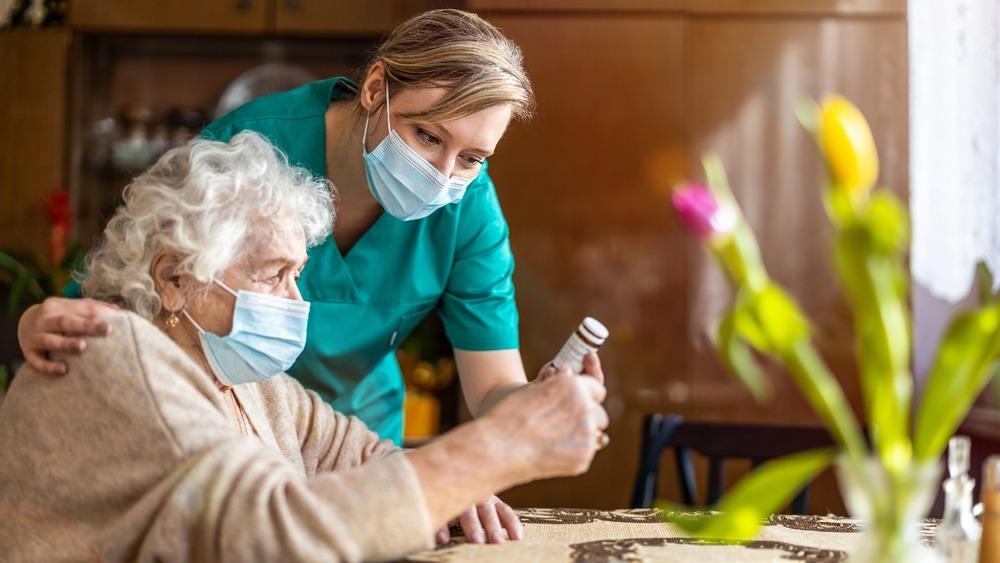In recent years, the healthcare landscape has undergone a significant transformation, particularly in the realm of home health care. Home Health Aides (HHAs) have emerged as vital players in this shift, providing essential support to patients in the comfort of their own homes. With the increasing demand for personalized care, HHAs are redefining patient care and ensuring that individuals receive the attention and assistance they need. This blog explores the role of HHAs, the statistics behind their impact, and how they are changing the face of healthcare.

The Rise of Home Health Aides
The demand for home health services has skyrocketed, driven by an aging population and a growing preference for in-home care. According to the National Association for Home Care & Hospice, approximately 12 million individuals in the United States receive home health care services each year. This number is expected to rise as more people seek alternatives to traditional hospital stays.
Key Statistics on Home Health Care
- Growth Rate: The home health care industry is projected to grow at a compound annual growth rate (CAGR) of 7.9% from 2021 to 2028.
- Aging Population: By 2030, it is estimated that 1 in 5 Americans will be of retirement age, increasing the need for home health services.
- Cost-Effectiveness: Home health care can be up to 30% less expensive than hospital care, making it an attractive option for families and insurance providers alike.
| Statistic | Value | Emoji |
|---|---|---|
| Annual Home Health Care Recipients | 12 million | 👥 |
| Projected Industry Growth Rate | 7.9% | 📈 |
| Cost Savings Compared to Hospital | 30% | 💰 |
| Aging Population by 2030 | 1 in 5 Americans | 👴👵 |
The Role of HHAs in Patient Care
Home Health Aides play a crucial role in delivering personalized care to patients. Their responsibilities often include:
- Assisting with daily living activities such as bathing, dressing, and meal preparation.
- Monitoring patients' health and reporting any changes to healthcare professionals.
- Providing companionship and emotional support, which is essential for mental well-being.
The Impact of HHAs on Patient Outcomes
Research indicates that patients receiving care from HHAs experience better health outcomes. A study published in the Journal of the American Geriatrics Society found that patients who received home health care had a 25% lower risk of hospital readmission compared to those who did not. This statistic highlights the importance of HHAs in managing chronic conditions and preventing complications.
| Patient Outcome | HHA Care | No HHA Care |
|---|---|---|
| Risk of Hospital Readmission | 25% lower | Baseline |
| Patient Satisfaction Rate | 90% | 70% |
| Improvement in Daily Living Skills | 80% | 50% |
The Future of Home Health Care
As technology continues to advance, the role of HHAs is expected to evolve further. Telehealth services, remote monitoring, and digital health tools are becoming increasingly integrated into home care practices. For instance, platforms like Healthline and WebMD are providing resources and information that empower patients and caregivers alike.
Embracing Technology
The integration of technology in home health care is not just a trend; it is a necessity. With the rise of telehealth, patients can now consult with healthcare professionals without leaving their homes. This convenience is particularly beneficial for those with mobility issues or chronic illnesses. Additionally, remote monitoring devices can track vital signs and alert HHAs and healthcare providers to any concerning changes.
| Technology Integration | Impact on Care | Emoji |
|---|---|---|
| Telehealth Consultations | Increased Access | 💻 |
| Remote Monitoring Devices | Early Detection | ⏱️ |
| Digital Health Tools | Empowered Patients | 📱 |
Conclusion
Home Health Aides are truly the unsung heroes of the healthcare system. They provide not only physical assistance but also emotional support, making a significant difference in the lives of their patients. As the demand for home health care continues to grow, it is essential to recognize the invaluable contributions of HHAs in redefining patient care. With the integration of technology and a focus on personalized care, the future of home health care looks promising.
In a world where healthcare is increasingly moving towards home-based solutions, HHAs are leading the charge, ensuring that patients receive the care they need while maintaining their independence. As we continue to navigate this evolving landscape, it is crucial to support and invest in the home health care workforce, ensuring that they have the resources and training necessary to provide the best possible care.
By embracing the changes brought about by HHAs, we can create a healthier, more supportive environment for patients and their families. 🌟




